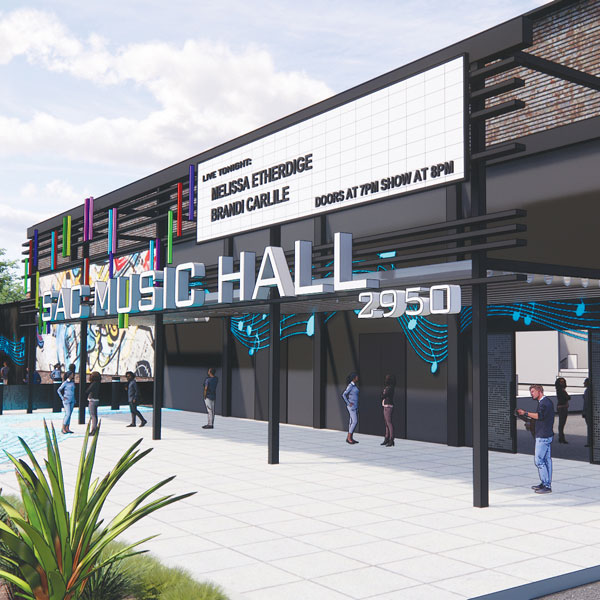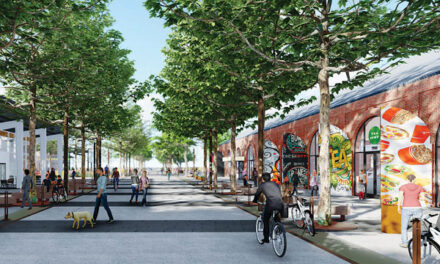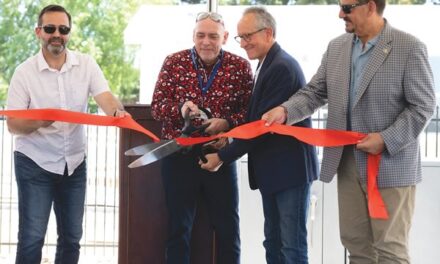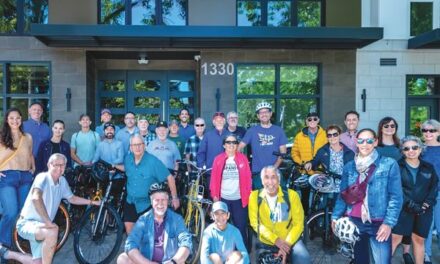If you were searching for a place to build an upscale concert hall and restaurant to lure name acts and music lovers, the spot Nick Bauta found is not an obvious choice.
South of Folsom Boulevard and across from Hornet Stadium at Sacramento State, the projected home for The Rose Sacramento sits in a neglected netherworld of train tracks and messy industrial sites—a neighborhood more blight than bright.

But this is Bauta’s comfort zone. In his hometown of Providence, Rhode Island, the developer’s projects, including the popular Fete Music Hall, helped transform a neglected industrial area into an eclectic, energetic destination.
“I like to think of myself as a developer of real estate for the arts,” he says. Providence media called Bauta “the unofficial guardian angel of Providence’s industrial building stock.”
Providence and Sacramento could be sister cities. About 50 miles south of Boston, the Rhode Island capital has long lived in the shadow of the Massachusetts metropolis. Popular musical acts often drove through and kept going.
Sacramento has Ace of Spades on R Street and the much bigger Memorial Auditorium, with a few niche venues such as Harlow’s and The Sofia in between. Hot acts that could attract crowds of 2,000 often hit San Francisco, Portland and Seattle, and bypass our city.
Bauta wants to correct that with a 19,000-square-foot performing arts center and musical hall that books performances two or three times weekly. In plans showcased on the project website (sacramentomusichouse.com), a 10,000-square-foot restaurant is included.
On Ramona Avenue between 65th Street and Power Inn Road, the space could be configured to accommodate recitals, music rehearsals, business meetings, community groups and other events ranging in attendance from 200 to 2,300.
“My background is as a sculptor, so designing the interiors of venues is something I’ve done right out of college,” says the 44-year-old graduate of the prestigious Rhode Island School of Design. “Finding good partners along the way, great managers—it’s quite a machine once it gets rolled out. The consistency and a lot of shows coming through, it’s an industry for sure.”
This is a project that should be music to the city’s ears as well. A financial analysis by Economic & Planning Systems, Inc. put the costs of construction and development at $11 million. The complex would support 81 full-time jobs and generate an estimated $10.7 million a year in tax revenues for the city, region and state.
Determined business owners in the area and city officials have had high hopes for development of the Power Inn District for years. Several attractive housing projects for Sac State students have finally generated momentum.
Now, once he gets his final city permit in the next few months, Bauta plans to start construction and optimistically eyes opening next summer or fall.
“We view ourselves as a catalyst for development in the district but first people need to feel safe,” he says. “Like it’s a good area to walk in or a good area to go down to, and right now you don’t get that feeling. It’s sort of a neglected part of the city.”
So why put The Rose there? Why not roll the dice in a more established and patronized part of the city like Downtown or Midtown?
Land in the Power Inn District is cheaper, for one thing. And a couple thousand people leaving a concert and walking to their cars would not be as disruptive there. Then there is the parking.
Part of the 5.3-acre parcel includes a vacant parking lot with 477 spaces, something that would cost a small fortune in the central city. The complex would include electric vehicle charging stations, solar generation on site and a shuttle to the Power Inn light rail station.
“We had other sites under contract Downtown but we moved away from them in favor of having our own parking where we wouldn’t bother anyone,” Bauta says. “Finding the site in the Power Inn District was just by chance, but it reflects a lot of work on the ground. My Google Maps probably has 200 spots marked on it in the Sacramento area.”
From all I have seen of the plans and Bauta’s track record in Providence, this is a project with great promise. The city and nearby property owners should embrace something with this much potential in a part of Sacramento that needs a catalyst to turn the corner.
Gary Delsohn can be reached at gdelsohn@gmail.com. Follow us on Facebook, Twitter and Instagram: @insidesacramento.















